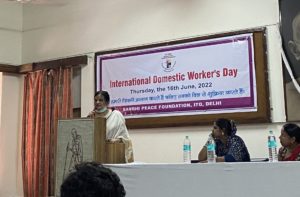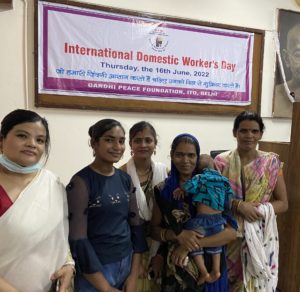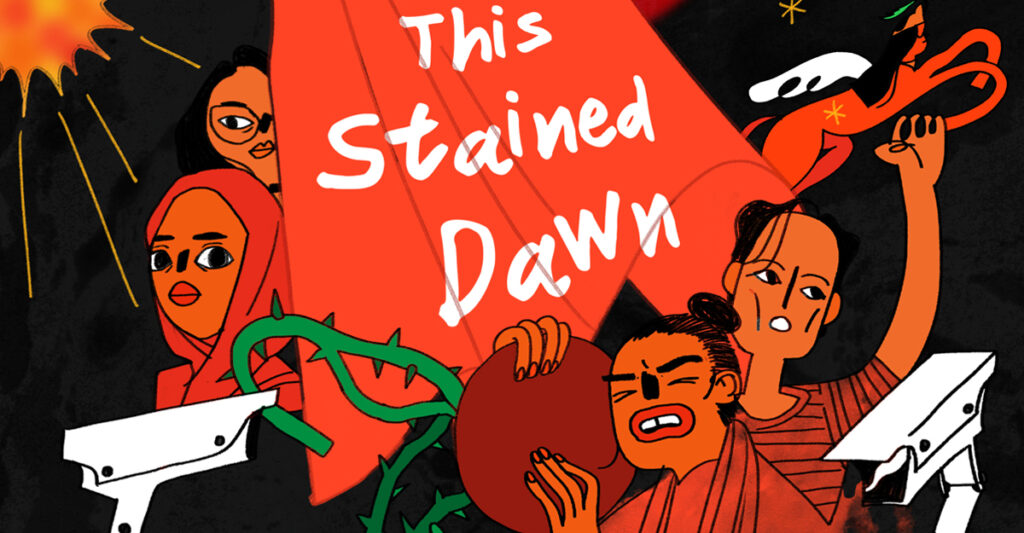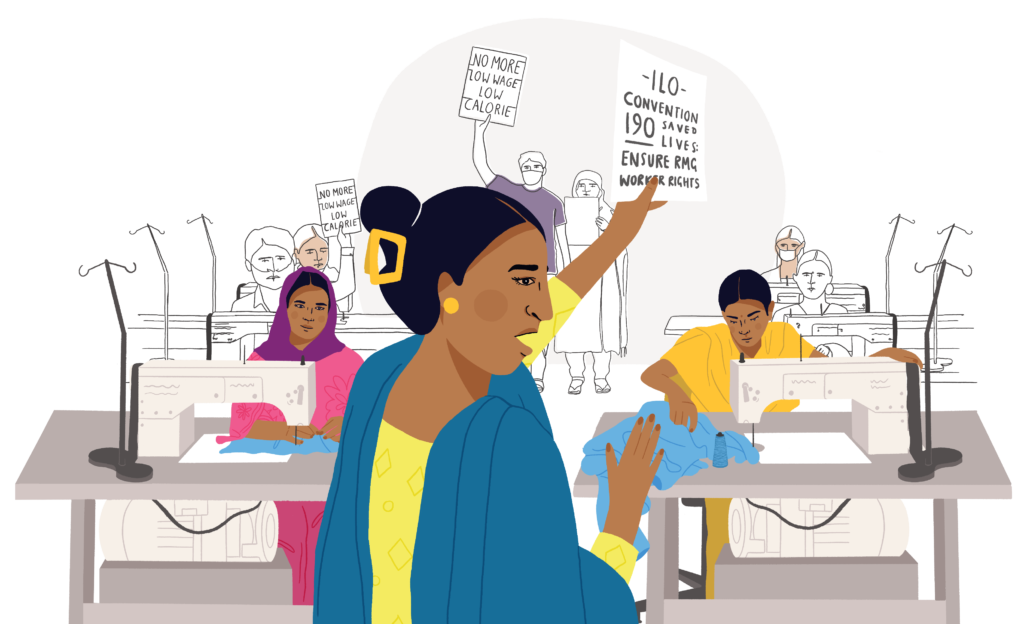The adoption of the ILO Domestic Workers Convention (C189) on 16 June 2011 is one of the most important milestones for the global domestic workers’ movement. On this day, the General Conference of the ILO adopted guidelines to recognise domestic workers as workers with rights protected by the state. Each year since then, 16 June has been celebrated as International Domestic Workers Day, serving as a reminder to countries around the world that the rights of domestic workers need to be upheld and their working conditions improved.
In India, the human rights of domestic workers are often violated. Domestic workers mostly work excessively long hours, with low pay, exploitative conditions, and with almost no access to social protection. Despite this, the Government of India has yet to ratify C189 even after eleven years of the convention.
Celebrating International Domestic Workers Day in India
On International Domestic Workers Day in Delhi this year, an event was held to highlight and address the failure of the Indian government to protect vulnerable domestic workers. It was organised by the National Platform for Domestic Workers in association with coalition groups like Community for Social Change and Development (CSCD), Delhi for Domestic Workers Rights, and Voices held at Gandhi Peace Foundation, Delhi.
The event was attended by various stakeholders, including the Labour and Employment Department of the Government of Delhi, other government employees, academicians, lawyers, civil society groups, and domestic work leaders.
A call for inclusion and recognition
 Elizabeth Khumallabam, Founder Member of CSCD, along with four domestic workers, spoke on a panel about state legislation, presenting issues pertaining to domestic work. CSCD demanded the inclusion of domestic workers in the Minimum Wage Scheduled List of Employment of Delhi, state legislation for Delhi, and National Legislation for domestic workers. The panel also discussed how various laws, including private bills around domestic work, have been presented about sixteen times in the Indian Parliament but have not been accepted to date.
Elizabeth Khumallabam, Founder Member of CSCD, along with four domestic workers, spoke on a panel about state legislation, presenting issues pertaining to domestic work. CSCD demanded the inclusion of domestic workers in the Minimum Wage Scheduled List of Employment of Delhi, state legislation for Delhi, and National Legislation for domestic workers. The panel also discussed how various laws, including private bills around domestic work, have been presented about sixteen times in the Indian Parliament but have not been accepted to date.
The history of the domestic workers’ movement was also discussed. The 1960s saw the start of conversations around domestic work in the realm of law, and in 1990s the feminist movements started engaging themselves with the issue. Despite this, the larger labour movement was dominated by men, side-lining the issues of domestic workers. However, the run-up to the ILO C189 in 2011 saw a more focused approach to the domestic workers issue in India, especially in policy circles.
Domestic workers in India are often ‘invisible’, like many other informal sector workers . To address this, attendees at the event raised the need for a national registry of domestic workers. This would allow domestic workers to be recognised and counted as workers and would lead to an accurate database of domestic workers in India.
Problems faced by domestic workers on a day-to-day basis were explored to a great extent through the testimonies narrated by the domestic workers’ representatives. Amidst all the issues – such as absence of paid leave, minimum wages, and safety and security concerns – the practice of untouchability was discussed in detail. Although legally banned in 1950, the subtleties of untouchability have remained in Indian society. Domestic workers shared their stories filled with incidents where they were denied access to employers’ bathrooms and given separate utensils for eating and drinking.
Standing for the rights of domestic workers
 Domestic workers present at the event, who also had to take unpaid leave from work, planned for more meetings and events like this one. They vouched to mobilise and organise other domestic workers who are already not a part of the movement. Lastly, all the organisations adopted the strategy of advocating and pushing the government to address their demands for the inclusion of domestic workers in the minimum wage schedule, a legal framework for them, and a national registry.
Domestic workers present at the event, who also had to take unpaid leave from work, planned for more meetings and events like this one. They vouched to mobilise and organise other domestic workers who are already not a part of the movement. Lastly, all the organisations adopted the strategy of advocating and pushing the government to address their demands for the inclusion of domestic workers in the minimum wage schedule, a legal framework for them, and a national registry.
After all, only in unity do we stand, and at the conference all present vowed to stand by the rights of domestic workers – on this day and always.

